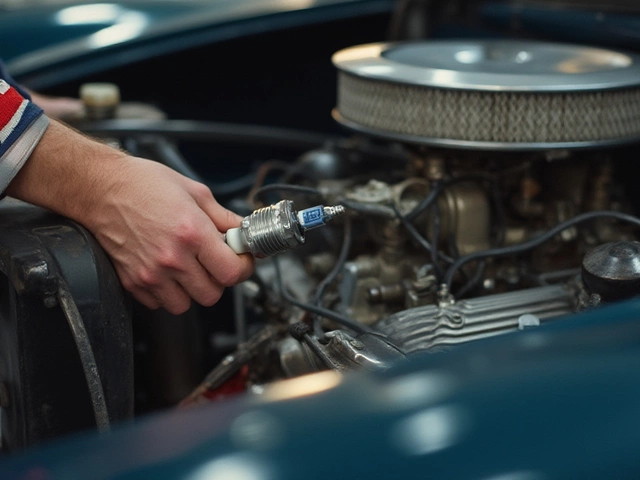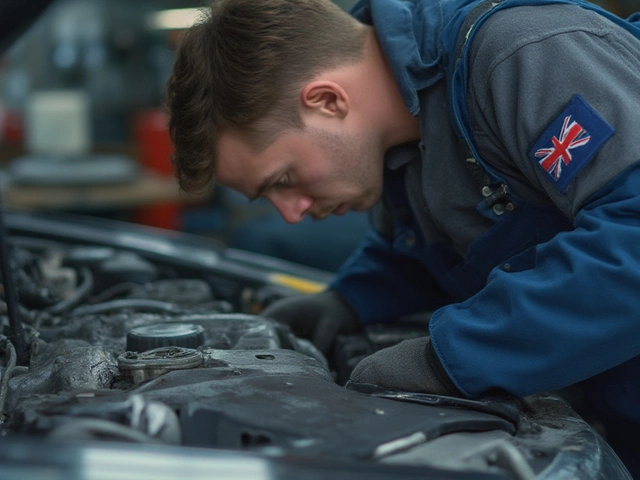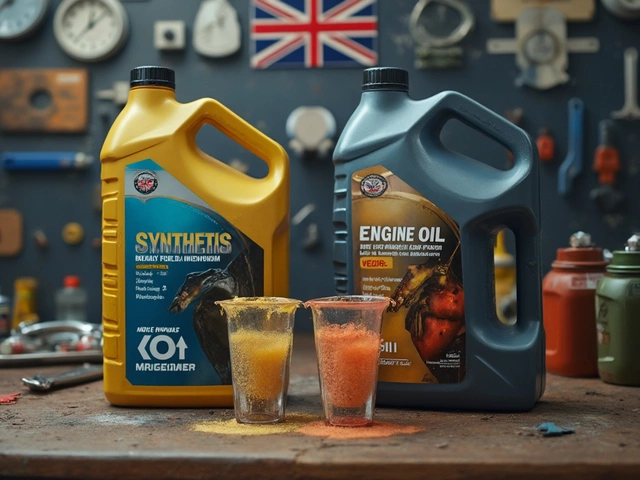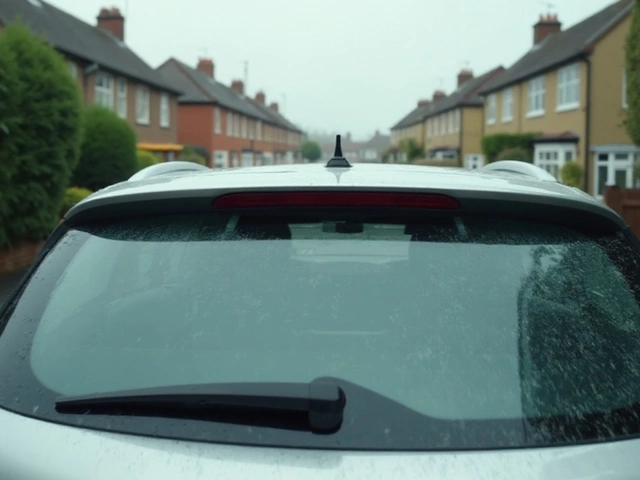Let's be honest, air filters aren't exactly the hottest topic, but their role in maintaining a clean and healthy home environment is undeniable. These unsung heroes keep the air in our living spaces fresh and free of harmful pollutants. Yet, many homeowners often overlook the importance of timely replacement.
Understanding the correct schedule for changing your air filters can be a game-changer for your home's air quality and even for your wallet. A clogged filter can increase energy consumption and strain your HVAC system. Recognizing when it's time to swap that old filter out isn't just about keeping your home free of dust bunnies; it's about efficiency and health.
Whether it's the type of filter or just the sheer number of pets you have, various elements can influence how often you should tackle this easy yet impactful task. So, let's dive into the world of air filters and explore how you can keep your home's atmosphere as fresh as a walk in the park.
- The Importance of Regular Air Filter Replacement
- Different Types of Air Filters
- Factors Influencing Replacement Frequency
- Indicators That Your Air Filter Needs Changing
- Tips for Maintaining Healthy Indoor Air Quality
The Importance of Regular Air Filter Replacement
Imagine living in a house where the indoor air feels like a breezy spring day. That freshness largely depends on the humble air filters doing their job behind the scenes. These filters trap a host of airborne particles such as dust, pollen, mold spores, and even pet dander. Over time, their effectiveness wanes as they fill up with debris, making it harder for your HVAC system to pull in air efficiently. Without regular air filter replacement, you're not just compromising on air quality; you're risking the health and efficiency of your entire home's environment.
The efficiency of an air filter is measured by its MERV rating—Minimum Efficiency Reporting Value. This number ranges from 1 to 20, indicating a filter’s ability to capture larger particles between 0.3 and 10 microns. Home comfort systems thrive on the balance between proper air flow and high filtration. Too high a MERV rating can strain the system, while too low reduces air quality. Routine changes ensure that the air circulating in your home is being filtered optimally, keeping uncomfortable and potentially harmful irritants out of your lungs.
Many people underestimate the impact a clogged air filter can have on their energy bills. The Department of Energy states that regularly replacing a dirty filter can lower your HVAC system's energy consumption by 5% to 15%. When air struggles to pass through a clogged filter, the system works harder, causing a spike in energy use. Just as a jogger doesn't run at peak performance when constantly taking deep breaths through a narrow straw, your HVAC unit can't maintain efficiency with a packed filter slowing it down.
HVAC systems are costly investments and regular maintenance extends their lifespan. Each part in this intricate machinery depends on smooth airflow. A blocked filter makes the fan motor labor as it attempts to circulate air throughout the house. Overworking can lead to overheating, causing breakdowns or significant repairs. With something as simple as regular air filter replacement, homeowners can avoid costly repairs and extend the lifecycle of their heating and cooling systems.
"Changing your air filter is one of the easiest ways to shield your indoor environment from various pollutants," says Dr. James Potter, Director of Environmental Health at a leading university.Proactive filter changes are essential not only for the hardware but also for your health. Filters don't just trap harmless specks of dust; they can also capture bacteria and viruses, which is especially critical in homes with young children, the elderly, or those with compromised immune systems.
Taking the time to replace your air filters regularly is akin to investing in a subscription to a healthier and more efficient living space. Next time you overlook this simple task, remember it’s more than just a chore. It's an investment in quality air, a lower energy bill, and a longer-lasting HVAC system. Recognizing this contributes profoundly to both practical home living and overall wellbeing.
Different Types of Air Filters
When you're on a quest to improve your home's air quality, understanding the various types of air filters can make a world of difference. Not all filters are created equal. Each type has its own characteristics, performance levels, and price points. Let's start with the most common type found in many homes: the fiberglass filter. These are often the most affordable and are designed to capture large dust and dirt particles. Despite their cost-effectiveness, they have a lower efficiency rating when it comes to smaller particles and aren't the best choice if you suffer from allergies.
Then, there are pleated filters. These are made from polyester or cotton and come with a higher efficiency for capturing smaller particles than the standard fiberglass ones. The more pleats, the better the filter’s ability to trap pollutants. Because of this, they can be a bit pricier, but many homeowners find the extra expense worthwhile for the increased indoor air quality. A step up from pleated filters are HEPA filters. Known for their high efficiency, HEPA stands for "High-Efficiency Particulate Air" and these filters capture up to 99.97% of airborne particles as small as 0.3 microns. They are commonly used in places where superior air quality is crucial, like hospitals.
If you're looking to combat odors, you might consider a carbon-activated filter. These filters use activated carbon to absorb odors and gases rather than capturing particles, like other filters. They are exceptional for homes with smokers or pets. Electrostatic filters are another interesting category, using an electric charge to attract and hold onto dust and pollen. These filters are washable and reusable, making them an eco-friendly option.
According to the American Society of Heating, Refrigeration, and Air-Conditioning Engineers (ASHRAE), selecting the right air filter can significantly impact the air quality of a building, improving conditions dramatically.
Finally, there are hybrid filters that combine elements from different types of filters to provide a comprehensive solution to air filtration. While choosing the right filter entails considering the specific needs of your household, always remember the importance of the filter’s MERV rating, which stands for Minimum Efficiency Reporting Value. MERV ratings range from 1 to 16; the higher the rating, the more efficient the filter is at trapping airborne particles.
To help you understand how different filters stack up, here's a quick comparison:
| Filter Type | Efficiency | Common Use |
|---|---|---|
| Fiberglass | Low | Basic Filtration |
| Pleated | Medium | Homes with Allergies |
| HEPA | High | Medical-grade Environments |
| Carbon-Activated | Varies | Odor Control |
| Electrostatic | Medium to High | Reusable Option |
Understanding these differences in filter types aids in crafting an effective strategy for maintaining clean and healthy air within your living spaces. So, when you next check your air filter, consider whether it's the right type for your home environment, because the air you breathe impacts your health more than you might realize.
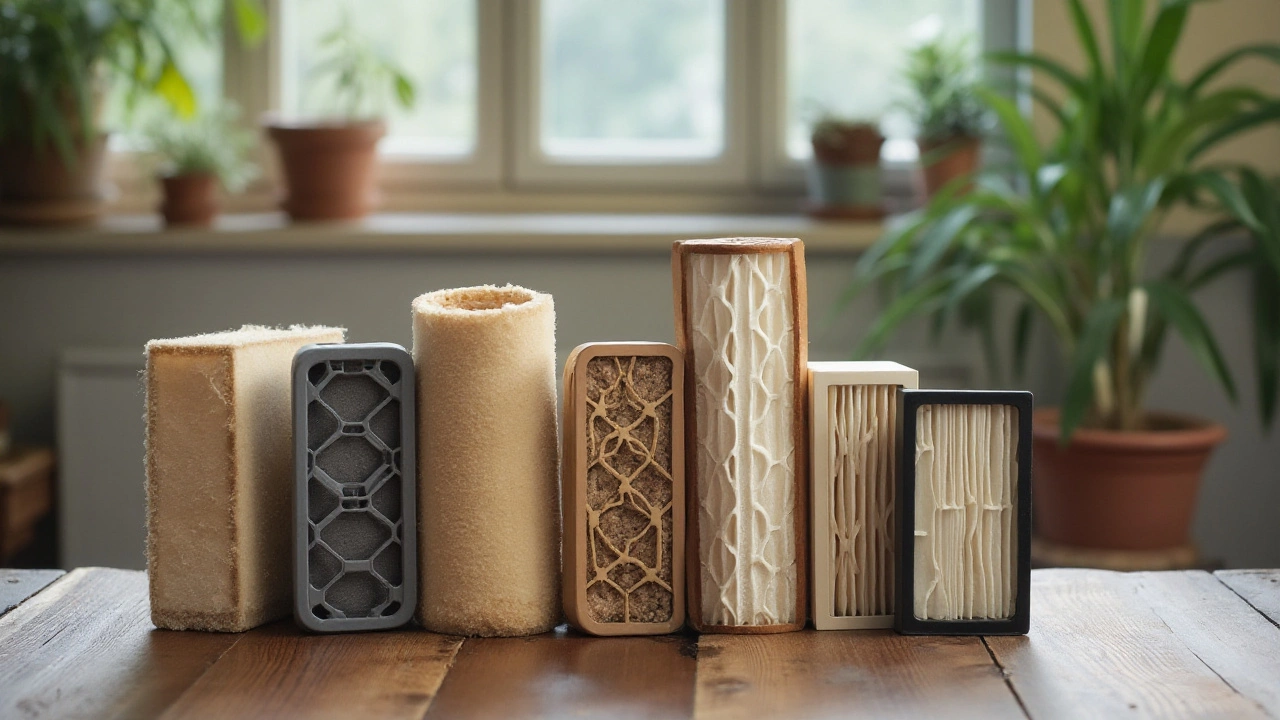
Factors Influencing Replacement Frequency
Understanding how often you should replace air filters involves more than simply following the calendar. Several critical factors determine the right time to change them, significantly impacting the air quality inside your home. One of the most significant influencers is the type of air filter you are using. Basic fiberglass filters typically require more frequent changes, around every 30 days, due to their lower filtration capacity. On the other hand, high-efficiency particulate air (HEPA) filters, known for trapping dust, pollen, and even some bacteria, can last between six to twelve months, but they are initially more costly.
The presence of pets in your house can dramatically shorten the lifespan of an air filter. Animals naturally shed fur and dander, which can quickly clog a filter. If you have multiple pets, you may find yourself changing the filters as often as every 20 days. Homeowners who struggle with allergies will also want to consider more frequent changes. A consistently replaced filter can significantly help manage symptoms by reducing allergens in the air.
"Filters play a crucial role in maintaining a home's indoor air quality," says Dr. James Murphy, a renowned indoor air quality expert. "Pet owners should be especially vigilant as pet dander can significantly impact the air quality, even more than dust or pollen levels in some cases."
Another influence on replacement frequency is the overall air quality inside and outside your home. Those living in urban environments might need more regular replacements due to higher pollution levels, unlike their rural counterparts who might manage with less frequent changes. Different climates and seasons also play a role; for instance, homeowners in dry, dusty environments might find filters need more attention than those in areas with substantial rainfall.
Environmental Factors
Changing filters is a must if you live close to construction sites or industrial areas, where airborne particles hang in thick clouds. These particles can compromise both your HVAC system's efficiency and your health, necessitating more frequent changes. Individuals who smoke indoors should also note that smoke dramatically reduces air filter effectiveness, meaning replacements should occur every month to maintain a healthy environment.
The number of people living in your household further affects how often you should replace your air filters. More people mean more dust, dirt, hair, and skin flakes, loaded into the air, driving the necessity for frequent changes. Homes with infants, elderly residents, or individuals with health concerns should particularly prioritize keeping the air clean and filters fresh.
Indicators That Your Air Filter Needs Changing
Your air filters are central to the health of your home's air quality, acting as a powerful barrier against dust, pollen, and other airborne particles. However, these filters have a finite lifespan, which means recognizing when it's time to replace them is crucial for maintaining both an efficient HVAC system and a healthy living space. Here are some detailed signs to watch for that suggest your air filter needs to be swapped out.
One of the first indicators is an increase in your energy bills. If your HVAC system is working harder to pull air through a clogged filter, it will consume more energy, and you could see a noticeable uptick in your utility costs. Keeping an eye on fluctuations in your monthly bills can be a simple yet effective way to identify a hidden problem. Speaking of energy, a Department of Energy study found that regular maintenance, including changing air filters, can lower your energy consumption by 5-15%.[1]
Visual Cues
Taking a moment to visually inspect your air filters is straightforward and can reveal some obvious signs that a change is overdue. A brand new filter should be nearly white, so if it appears gray or is visibly covered with dust and debris, this means it's time for replacement. Sometimes it’s easy to forget to check, but adding a monthly reminder can ensure this simple task doesn't slip through the cracks.According to the EPA, “Regular cleaning and maintenance, including replacing old filters, can improve the overall efficacy of your HVAC systems and the air quality within your home.”
Temperature and Air Quality
Another telltale sign is uneven heating or cooling throughout your home. When air flow is restricted, it leads to temperature discrepancies, with some rooms being too hot or too cold. In similar vein, if your family members are experiencing more allergy symptoms indoors than usual, such as sneezing or coughing, your clogged air filters might be circulating less-than-clean air.For pet owners, this is even more pertinent as pets shed hair and dander, which can block the air filters more quickly. Failure to accommodate for this can lead to clogged filters and increased allergens in your living quarters. You might need to change the filters more frequently, every 30 to 60 days, to combat this issue.
Regular maintenance is a game of vigilance. It involves noting when your specific filters appear to be performing sub-optimally. By recognizing these signs early, you can respond swiftly and maintain a healthier, more efficient home.
| Condition | Suggestion |
|---|---|
| Air blowing weakly from vents | Change the filter and check for blockages. |
| Increase in allergy symptoms | Try higher-grade air filters with improved filtration capabilities. |
| High energy bills suddenly | Inspect and replace clogged filters to improve airflow. |
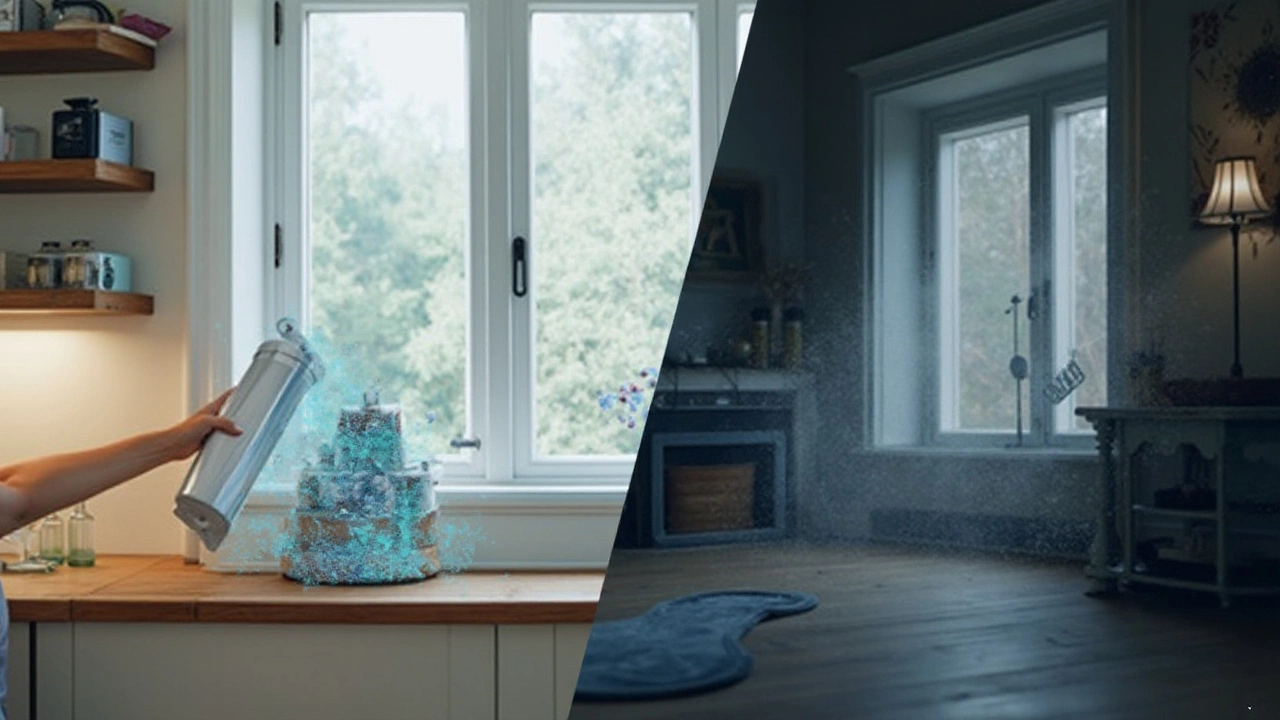
Tips for Maintaining Healthy Indoor Air Quality
Breathing is one of life's essentials, and the quality of the air we inhale can have a profound impact on our health and well-being. Ensuring your home boasts the cleanest, healthiest air possible might sound like a tedious task, but with some dedication and a few simple steps, it's quite attainable. Air filters play a major role here, as they trap the nasties like dust, pollen, and even bacteria before they infiltrate your living spaces.
Start by staying vigilant about replacing those air filters routinely. It's easy to lose track of time in the hustle and bustle of daily life, but setting a reminder can work wonders. Many manufacturers recommend changing filters every three months, but if you have pets, or if allergies are a concern, you might want to consider a more frequent replacement cycle. And don't forget to vacuum and dust regularly to help lessen the load on those filters.
Another smart move is to introduce some houseplants into your décor. These green companions are known to naturally purify the air. Plants like the peace lily, spider plant, and snake plant can help remove toxins. Combining nature's miracles with your electronic air purifiers can create a perfect balance for cleaner air.
Letting fresh air in may seem like a no-brainer, but it’s worth mentioning. Whenever the weather permits, open your windows to allow fresh, outdoor air to circulate and bring in new breezes. This not only refreshes the air within your home but also promotes better health, as fresh air can improve mood and energy levels.
Investing in quality air purifiers for your home can also make a significant difference, particularly in spaces you frequent the most, like the bedroom or living room. These devices can kick out any sneaky allergens that bypass the air filters, giving you that peace of mind that your home is an oasis of clean air. Don't let your HVAC system's maintenance checks fall by the wayside either. A well-maintained system functions more efficiently and supports healthier air quality.
"Keeping the air in your home effectively filtered is the best way to combat indoor pollution," says Dr. Joseph Allen, a prominent expert in building health at Harvard University.
You'll want to regularly swap out any worn or outdated filters and clean air ducts every few years, as specified by your HVAC system's guidelines. It's surprising how much debris can accumulate in those hidden crevices, silently eroding the air quality in your house. These simple efforts can make a massive impact on the air you breathe every day.


